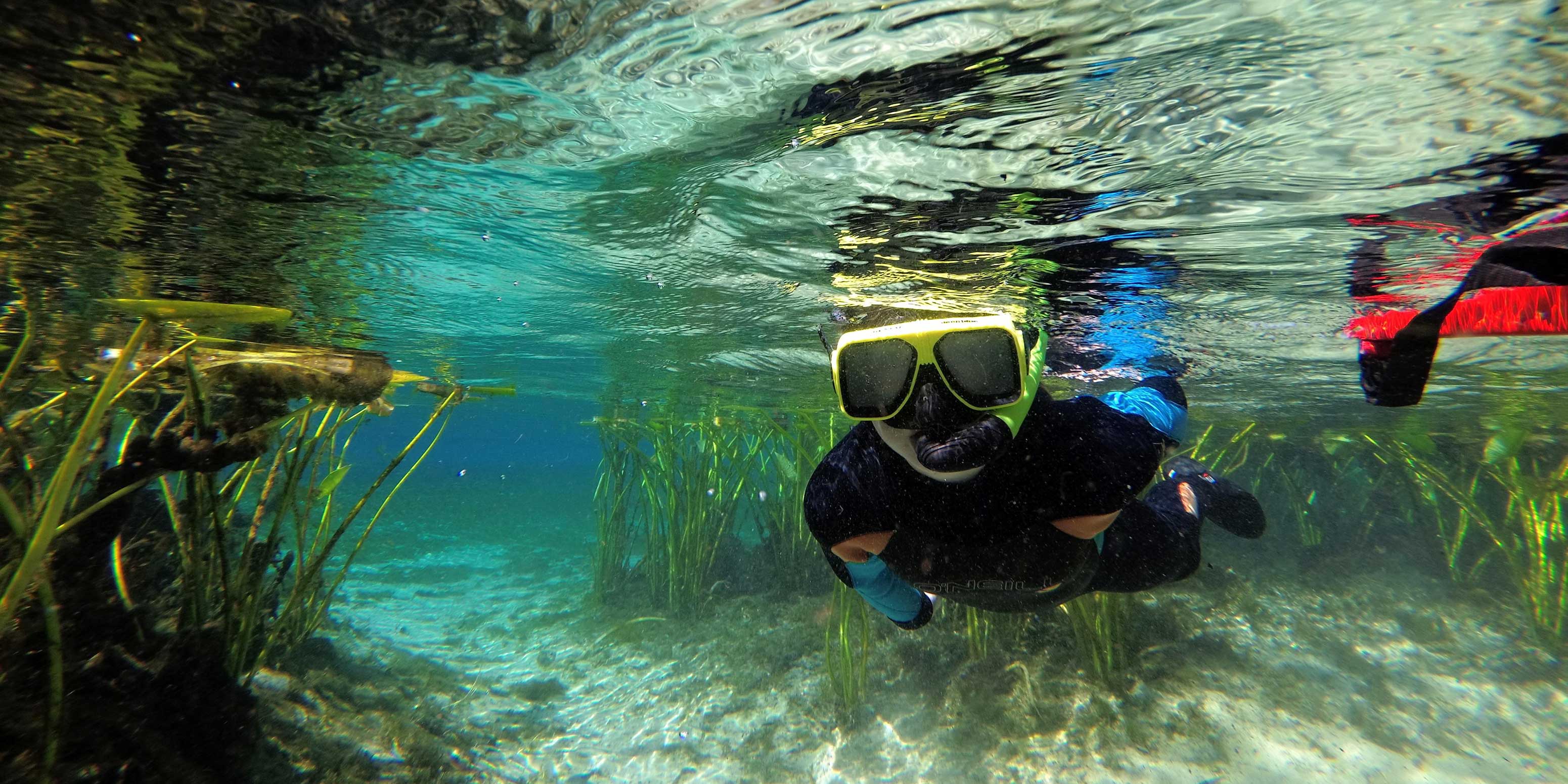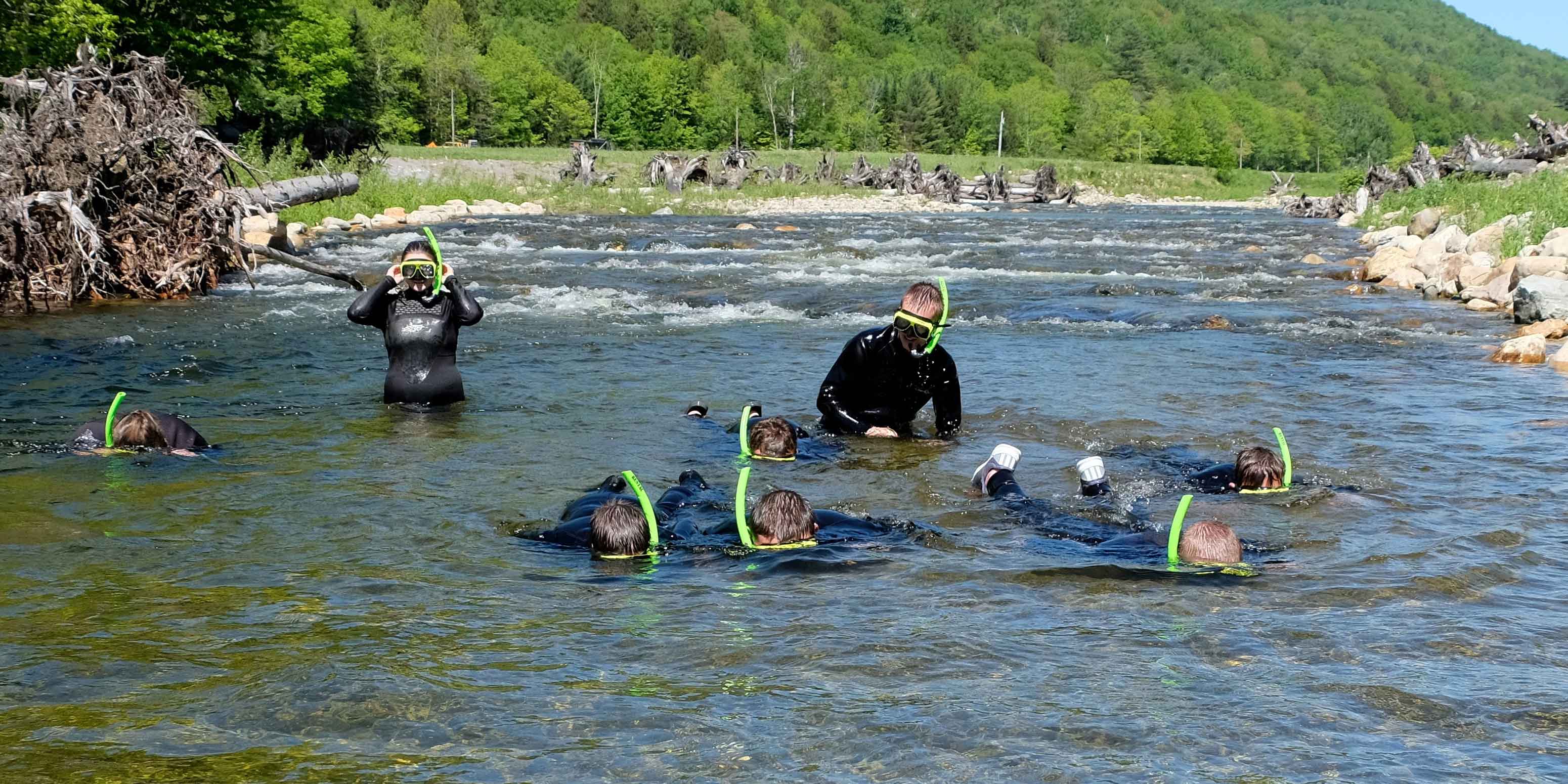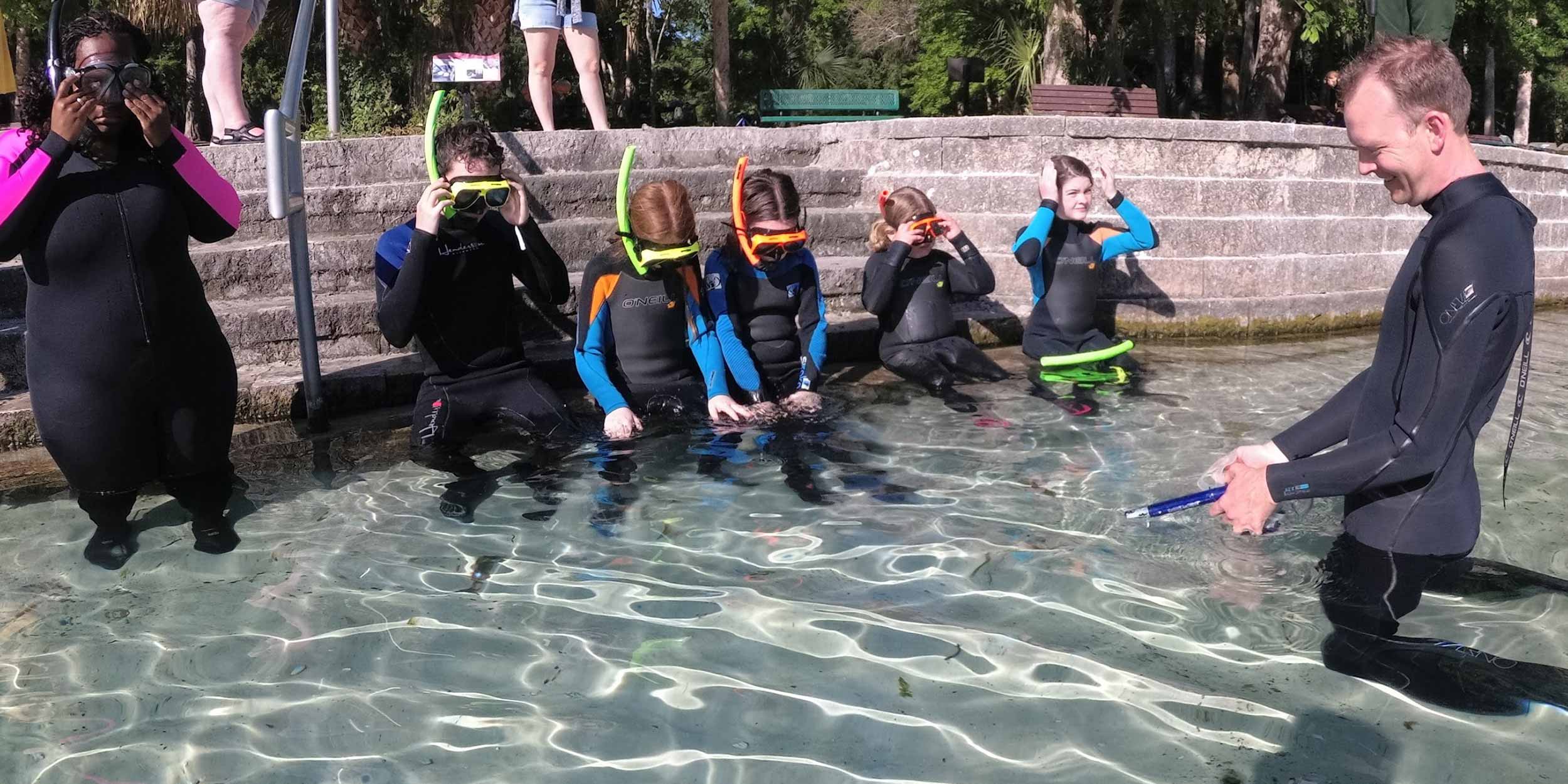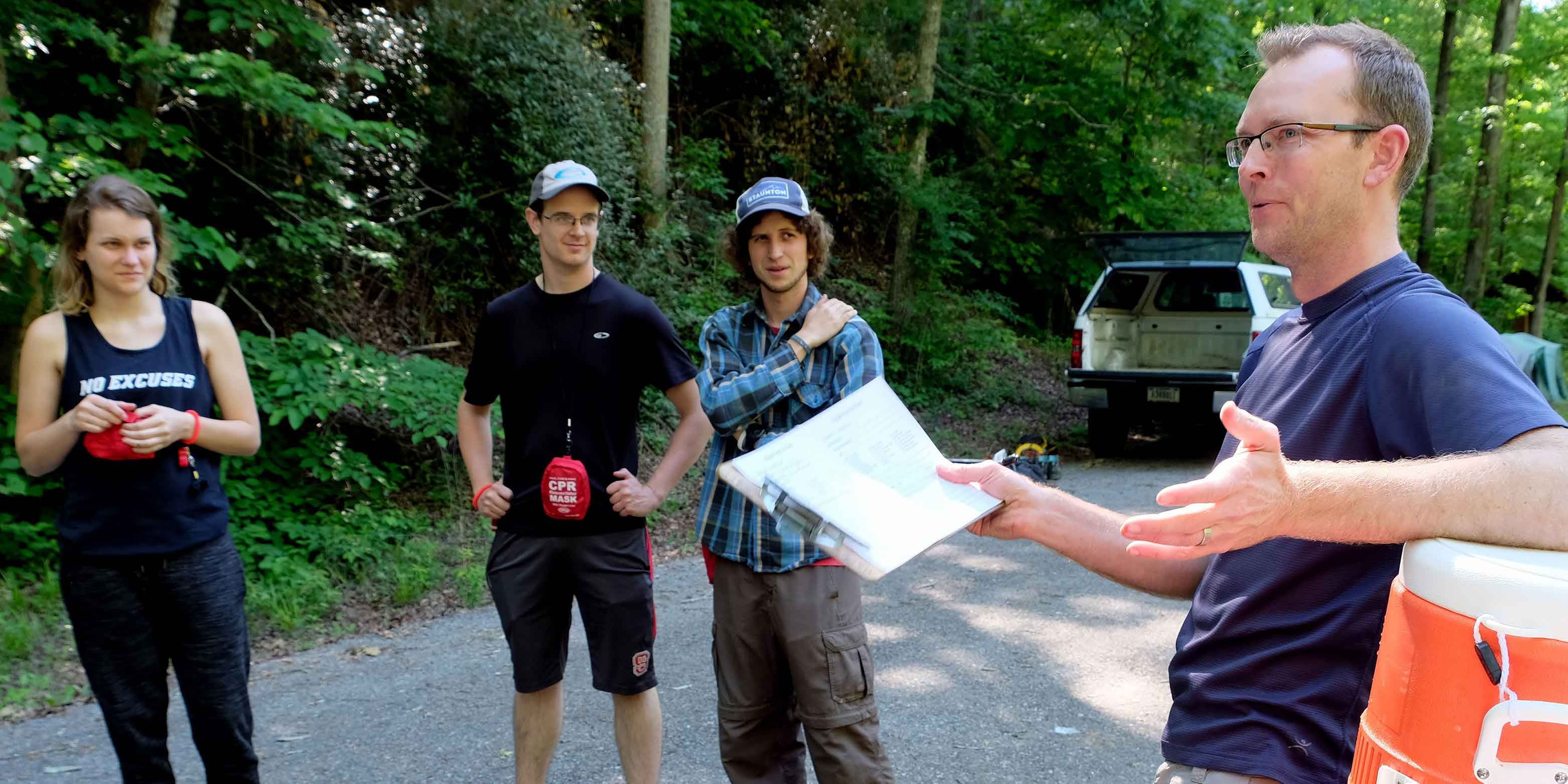Alumnus helps kids explore freshwater streams and rivers by getting their feet wet
February 15, 2019
A student explores the crystal-clear waters of Alexander Spring on Florida’s Ocala National Forest.

The best part of alumnus Craig Roghair’s outreach work is hearing the reactions of students when they first put on a wetsuit and mask, and duck their heads into a freshwater stream.
“The kids take to the water very quickly, and they’re amazed by what they see,” said Roghair (’00 M.S. fisheries and wildlife sciences), a fisheries biologist for the USDA Forest Service. “You hear lots of hoots and hollers through the snorkels, and excited shouts when they see their first fish. One student came out of the water and said, ‘I didn’t even know there was all this stuff to care about!’”
These reactions are a first step in meeting the wider goals of the Forest Service’s freshwater snorkeling program, which Roghair has been involved with since 2016. The program seeks to connect students with freshwater habitats and strengthen their understanding of the importance of protecting our nation’s watersheds. It is a part of the organization’s broader strategic objective to connect people to the outdoors.
“We start with 30-40 wetsuits and snorkels and masks,” Roghair explained. “We get a busload of kids from a particular school and we take them to a stream and outfit them with gear and teach them how to use a snorkel and mask. Then they get the chance to explore the underwater world. We’re trying to get students to take a deeper dive in, to get a close look at what is under the surface of our waterways, so they can appreciate the natural aquatic heritage that we have.”
After onsite instruction in snorkeling techniques, students explore freshwater habitats, looking for fish, aquatic insects, turtles, and other underwater life in the West Branch White River on Vermont’s Green Mountain National Forest.

The snorkeling program works with students from fourth grade through high school. In addition to the field experience, the program includes a curriculum that teaches students about watersheds and river habitats, the work that the Forest Service does to manage healthy forests that produce abundant clean water, and what the students themselves can do to help protect and preserve these crucial places.
Craig Roghair (right) teaches Florida schoolchildren the basics of snorkeling before they venture into Alexander Spring on the Ocala National Forest.

For Roghair, getting kids out in nature has brought him full circle to his own motivations to work in the field. “When I was in middle school, I went on a field trip sponsored by the Wisconsin Department of Natural Resources where we went out and saw what different natural resource professionals did. There was a soil person and a forestry person, and they had a station set up along a creek where they were doing electrofishing, which allowed the biologists to bring fish up out of the water for us to see. And I thought, ‘How do I get a job like that?’” he recalled.
As a master’s student at Virginia Tech, Roghair found himself immersed — quite literally — in Virginia’s streams and waterways. “I had the opportunity to work as a field technician in the fisheries program. One of the first things I had to do was put on a wetsuit, mask, and snorkel and swim around the streams here in Virginia. And it was a mind-blowing experience for me, one that carried through my graduate work. There is an amazing diversity of fish and aquatic life in these waters, and it’s great to get the chance to show that diversity to young students.”
Craig Roghair (right) gives final instructions to a snorkeling education team of Forest Service, Virginia Tech, and NorthBay Foundation employees before students arrive for a snorkeling session in Alabama.

Roghair works with fellow Forest Service biologists and technicians at the Center for Aquatic Technology Transfer in Blacksburg. The unit, affiliated with the agency’s Southern Research Station, is led by Professor Andrew Dolloff, a faculty member in the Department of Fish and Wildlife Conservation.
“The Center for Aquatic Technology Transfer is a science delivery program,” Roghair said. “We take science and apply it to resource management challenges in the national forests. We do a lot of inventory and monitoring work for aquatic species like fish, insects, freshwater mussels, and crayfish. We work in a lot of the national forests of the Southeast, including the forests of Puerto Rico, which has an amazing freshwater ecosystem.”
The freshwater snorkeling program that Roghair helped to jump-start has brought students into streams in Virginia, Florida, Alabama, and Vermont, and he is optimistic that other states will be added in the coming years. The chance to help young students make a connection with the streams and water systems has been a new and exciting challenge for him.
“The freshwater snorkeling program is very different from anything we’ve done at our center, and it’s led me down a lot of new and interesting paths in environmental outreach and education,” Roghair explained. “It’s been a great experience for me, and I look forward to expanding the program further.”


